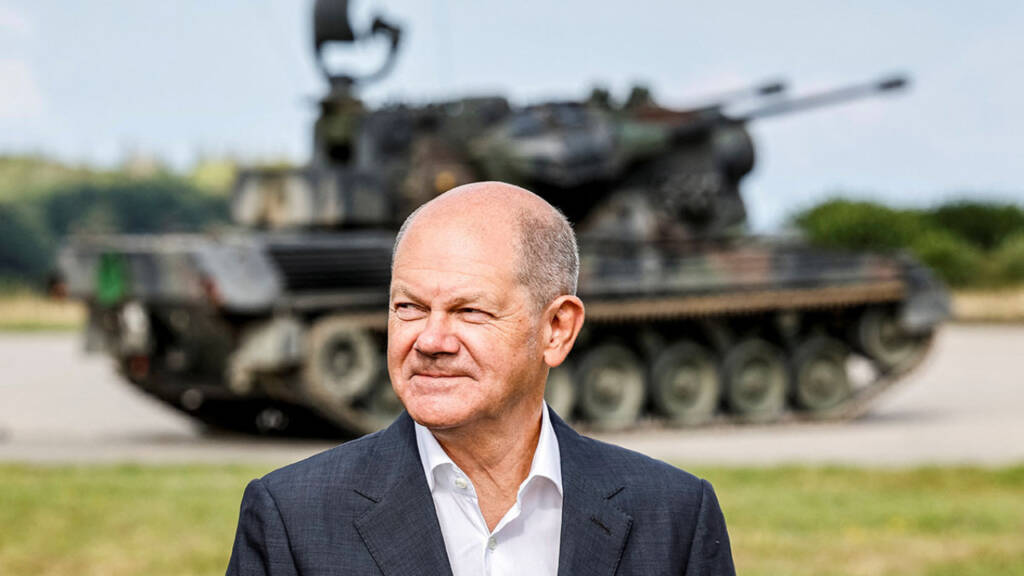Germany, once a steadfast ally of Ukraine, now faces a changing stance. Doubt and weariness are palpable in German leadership, leaving Ukraine isolated in its struggle.
The conflict has strained the German economy, causing increased energy costs and inflation, affecting businesses and households alike. Public weariness with the ongoing war has added pressure on the government to seek a faster resolution.
Recent actions include Germany’s decision to repatriate all Ukrainian men, signaling a shift in policy towards the conflict.
Germany’s recent decision involves repatriating a significant number of Ukrainian men who sought refuge in the EU, aiming to redirect them back to Ukraine. Roderich Kiesewetter, a German MP from the CDU party, emphasized the necessity for Ukrainian citizens living in European nations to return to their homeland. He asserted that their enlistment in the Ukrainian army would significantly bolster President Zelensky’s administration. This policy shift is notably linked to the challenge of insufficient military personnel in Ukraine.
Join us on Telegram: https://t.me/tfiglobal
Following the conflict’s onset in February 2022, Ukraine enforced a mass mobilization and restricted men aged 18 to 60, who were eligible for military service, from leaving the country without special permission. The nation faced issues in maintaining adequate troop levels, leading to reports of significant draft avoidance, highlighted frequently by Ukrainian authorities and media.
Read More: It’s official Germany cuts Ukraine’s arms supply
Ukrainian Deputy Defense Minister Natalya Kalmykova raised concerns over the evasion, citing the evasion of “tens, hundreds of thousands” of individuals from conscription. Reports in November indicated that nearly 8,000 Ukrainians were confronting legal repercussions due to draft avoidance.
Amidst these challenges, Ukraine encountered difficulty in meeting military requirements, resorting to conscripting essential workers, potentially straining the nation’s long-term economic stability, as per Die Welt’s reporting.
Kiesewetter highlighted the magnitude of Ukrainian men avoiding military service in the EU, estimating over 600,000 individuals, including approximately 220,000 residing in Germany. He suggested redirecting these individuals back to Ukraine to either join the army or contribute to humanitarian efforts, emphasizing the importance of their participation in supporting the nation’s defense or aiding in civilian support activities.
All those people should be urged to go back to their home country to either join the army or to “help … by supporting the Red Cross, clearing up rubble, helping the fire brigades and providing civil support,” the MP, a member of the biggest opposition party, the Christian Democratic Union (CDU), said.
Moreover, this year, Germany, among other EU states, opposed the European Commission’s plea for an additional €66 billion to address unexpected costs. Recent events expose tensions within the EU, notably Germany’s hesitance in reaching an accord to extend support to Ukraine. Reports in November unveiled reservations from Germany and other member states about Brussels’ proposal to allocate around €20 billion over four years for Ukraine’s military aid, sourced from Reuters based on unnamed diplomats.
Read More: Germany goes ABSENT from EU meeting to get out of the Ukraine Mess
Additionally, Germany seeks to reduce its contributions to the European Peace Facility (EPF), a key aid mechanism for Ukraine in its conflict with Moscow. Berlin aims to decrease its share within the EPF, signaling a shift in its commitment to supporting Ukraine’s endeavors.
Germany, once a stalwart ally of Ukraine, now shows signs of impatience with the prolonged conflict. Despite prior significant military aid, Germany hesitates to offer more advanced weaponry, like Leopard 2 tanks, drawing frustration from Ukrainian officials who deem such equipment vital for defense.
Initially united, German public opinion now displays division. A recent poll indicates 42% of Germans prioritize addressing their own economic issues over further supporting Ukraine.
These shifts suggest a potential weakening of Germany’s steadfast support. The future will unveil if these initial fissures grow, potentially altering Germany’s once unwavering backing of Ukraine.
Watch More:
